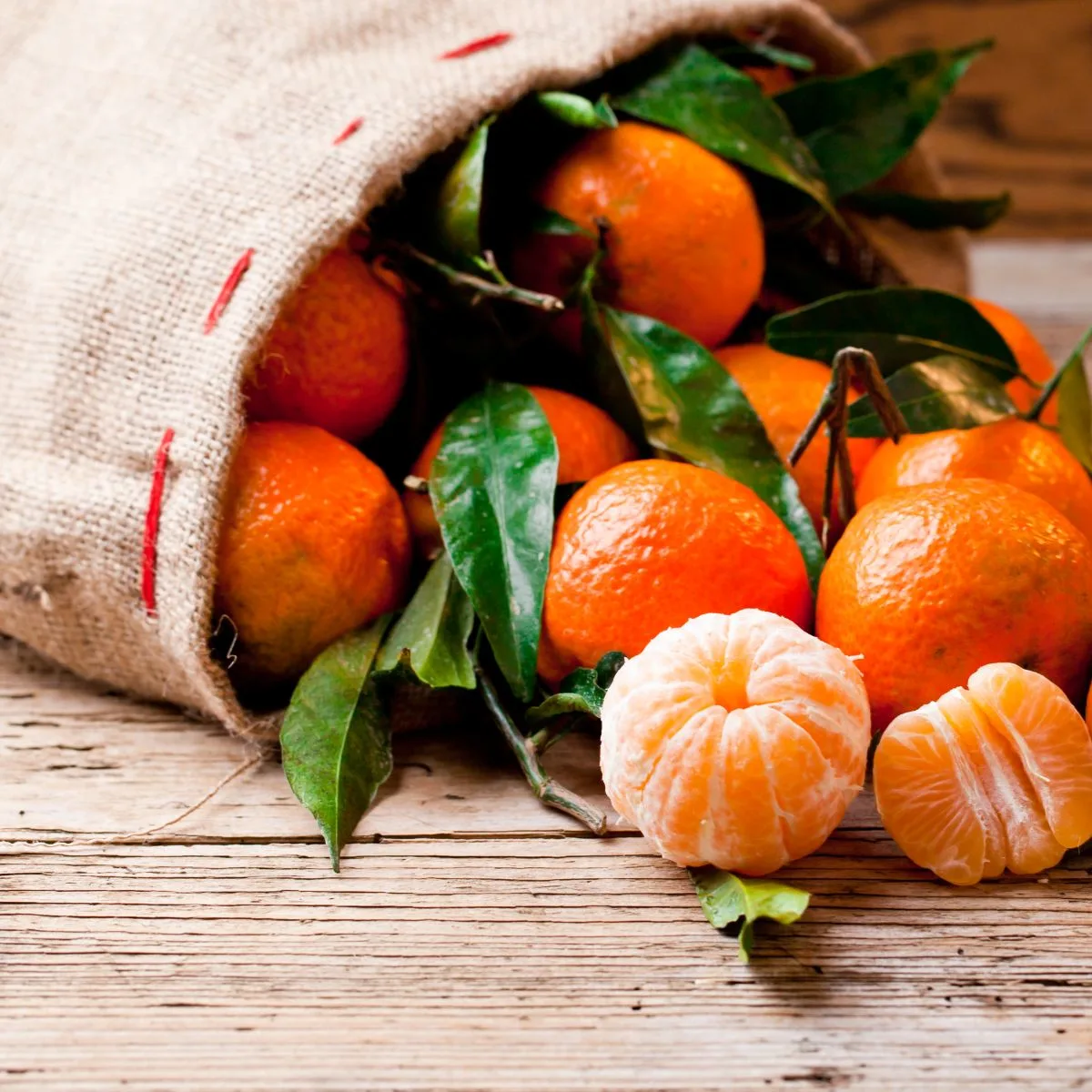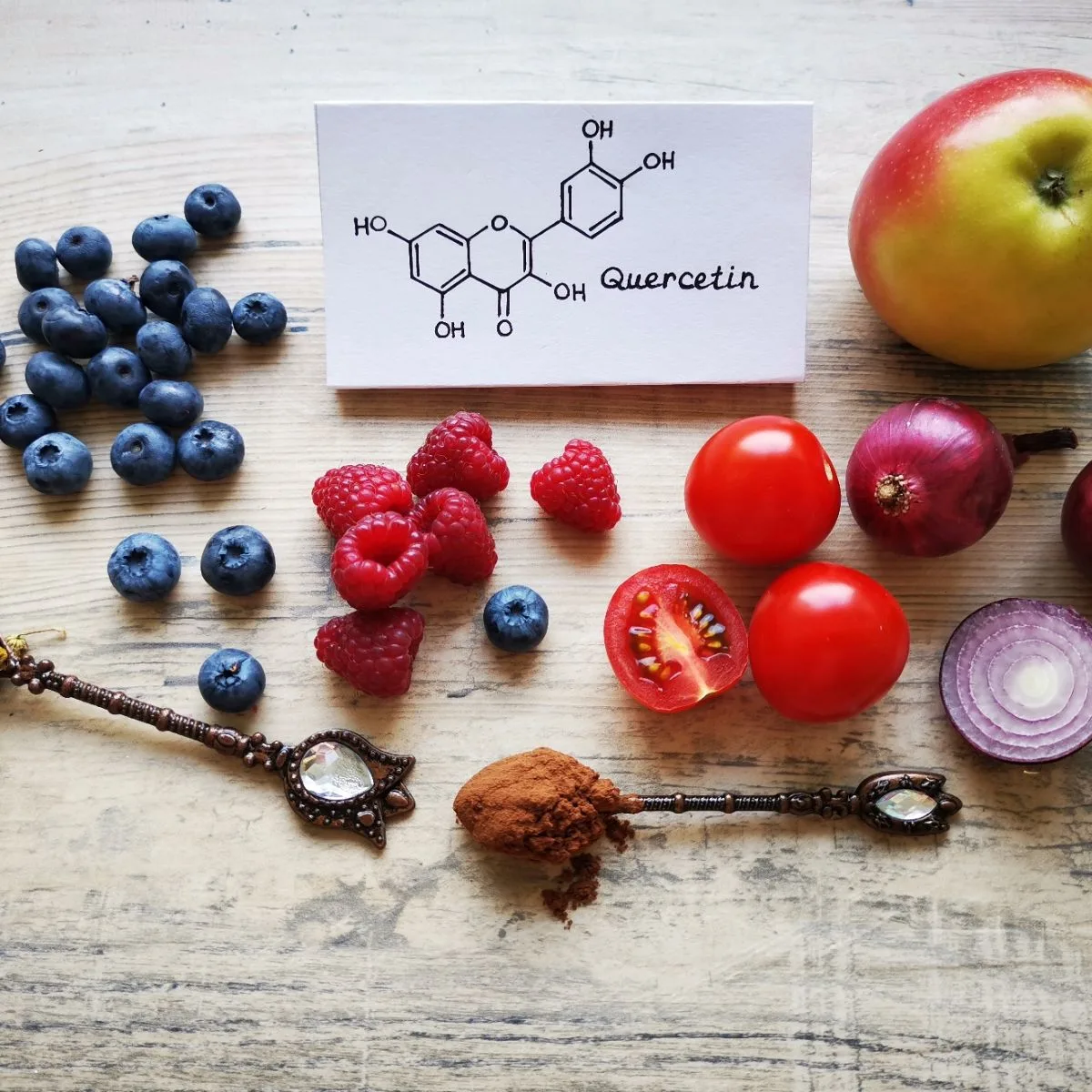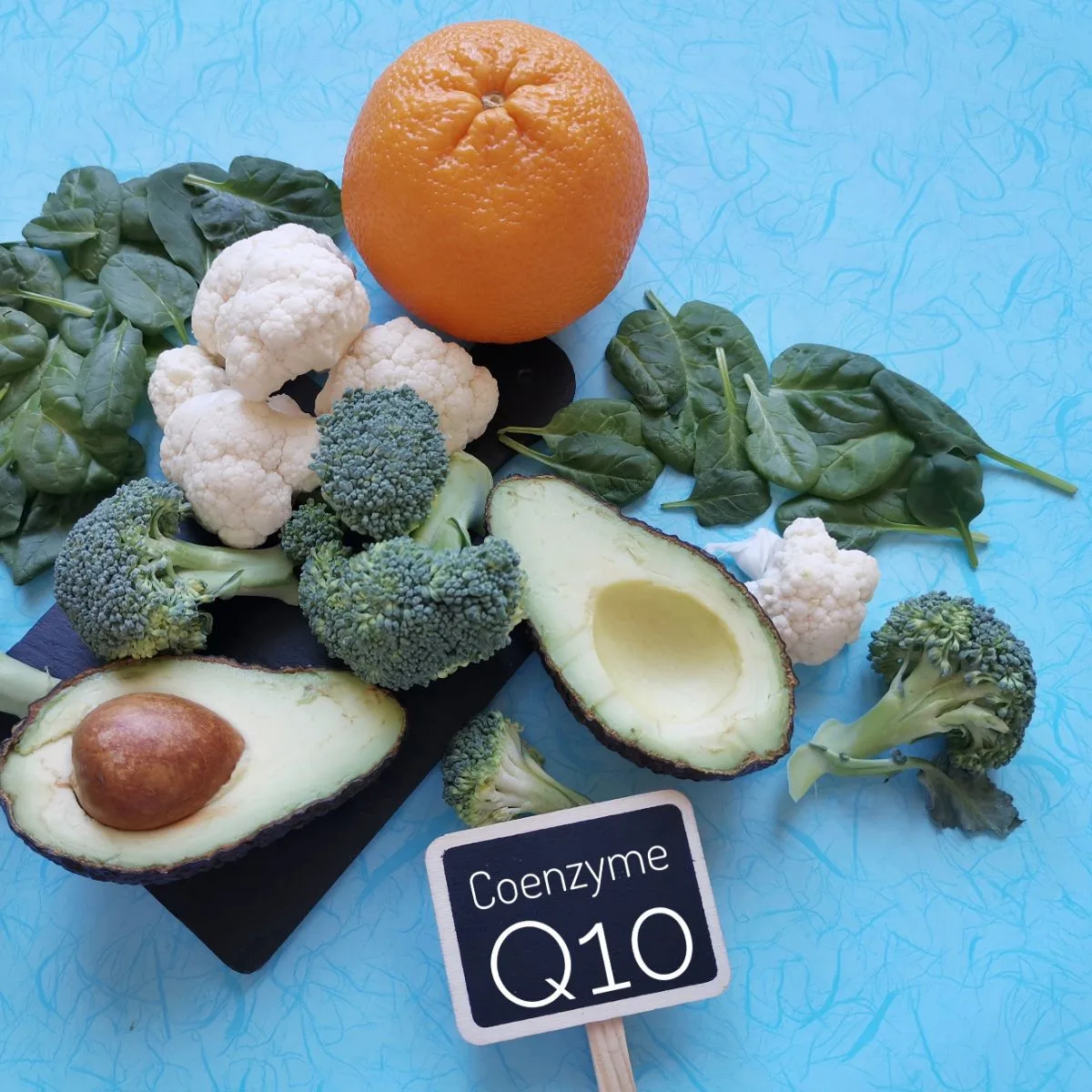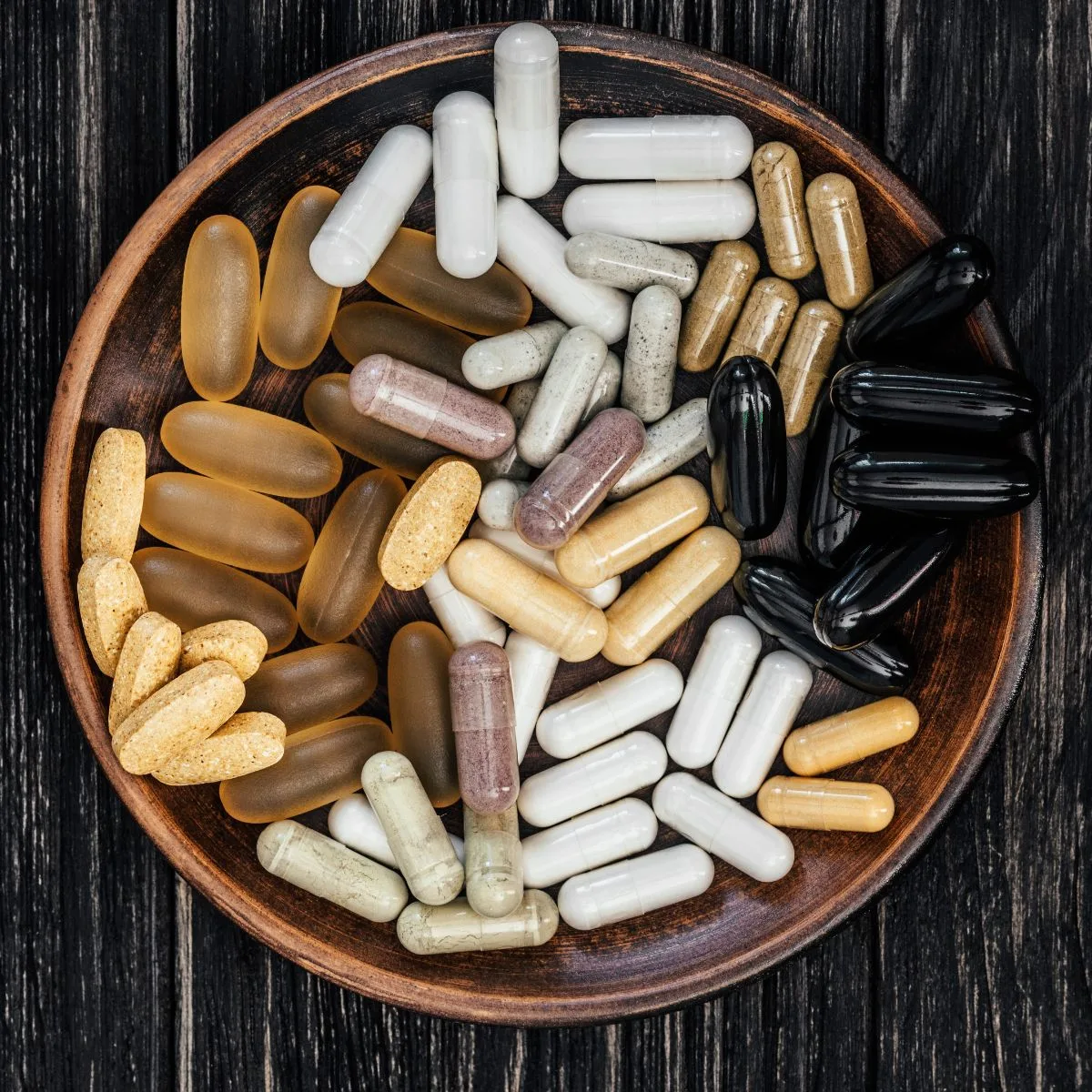Is quercetin the same as CoQ10?
Short answer – No, Quercetin and CoQ10 are two different compounds. Quercetin is a flavonoid found in fruits and vegetables with various health benefits, while CoQ10 is a vitamin-like substance that helps the body produce energy and works as an antioxidant.
Introduction
If you’re looking for ways of being healthier and getting fitter, of course, a healthy diet and smart exercise regime are both great places to start.
Going beyond that, however, to give yourself that little bit of a boost, health supplements could be the answer.
When choosing supplements, it can be easy to be overwhelmed as there are all manner of different accessories currently available, with each one promising to do something different for the body.
For optimal cognitive and physical health, however, Quercetin and CoQ10 are two supplements that have proved hugely popular lately and which happen to be used by all manner of people for various reasons.
One of the most common misconceptions surrounding CoQ10 and Quercetin, however, is that CoQ10 is the same as quercetin, only sold under a different name.
But is this actually the case?
To find out, we’ll be looking at both supplements in more detail.
So, is Quercetin the same as CoQ10?
Keep reading for a more in-depth analysis.
What is Quercetin?
Quercetin is a plant compound, also known as a flavonoid.
This flavonoid is a very powerful antioxidant that helps to destroy free radicals and toxins in the body, thereby protecting your cells from damage caused by oxidative stress and damage.
This plant-based antioxidant is one of the most powerful and prominent in existence and is renowned for its longevity-boosting effects.
Quercetin is commonly found in a wide range of foods, including berries, vegetables, and grains.
Of all dietary flavonoids in existence, quercetin is the most prominent as it provides a wide range of health benefits to the human body and mind.
Not only does it serve as an antioxidant, but it also functions as an anti-inflammatory, helping to prevent and curb inflammation in the body. This is important because inflammation often serves as a precursor for chronic pain and chronic illness.
What makes quercetin so healthy?
There are many, many health benefits associated with quercetin, and while we don’t have the time to list each one individually, we can look at some of the main reasons why it is considered so beneficial for the human body.
For starters, quercetin is a powerful antioxidant that binds to unstable molecules in the body known as free radicals.
It binds to free radicals and then destroys them. If left unaddressed, free radicals can attack healthy cells and damage them via oxidative stress.
This can cause healthy cells to become damaged, destroyed, or mutated, which could result in cancer or other chronic illnesses.
Quercetin has been found to reduce blood pressure, prevent oxidative DNA stress and damage, boost cognitive health, reduce inflammation, and strengthen the human immune system.
While research is not yet conclusive, there are very strong signs that suggest that quercetin could help protect against a wide range of health issues and ailments, including hypertension, arthritis, and some strains of cancer.
What is CoQ10?
CoQ10, or Coenzyme Q10, is another supplement renowned for its healing effects on the body.
In the human body, a coenzyme is a basic molecule that is vital for the healthy functioning of specific enzyme systems within our cells.
Basically, these molecules help ensure that the cells work as they should and play key roles in numerous physiological processes.
Coenzyme Q10 is a naturally occurring coenzyme that features 10 isoprenoid groups in its prenyl side chain. This is where it gets the 10 in its name from.
If this sounds a bit complex for you, then don’t worry, because the long and short of it is that CoQ10 is a naturally occurring antioxidant that the human body is able to synthesize. Cells in your body use this antioxidant for growth, function, and maintenance.
READ MORE: Can Chlorophyll Affect My Birth Control?
What makes COQ10 so healthy?
As you can see, this is another antioxidant that plays a key role in general health and wellness.
CoQ10 is one of the healthiest antioxidants in existence.
Subsequently, listing each health benefit, it provides the body would take an age.
What we can do, however, is look at some of the main reported health benefits of this particular coenzyme.
CoQ10 has been found to help reduce blood pressure, promote energy production, fight and reduce inflammation, protect the cells in your body, reduce cardiovascular disease risk factors, protect the brain, and promote cognitive health and function.
Just to make matters worse, after we reach 30 years of age, our bodies naturally produce less CoQ10 than they used to, which is why supplementing with this particular ingredient is considered so beneficial.
The older we get, the less we produce, so supplementing with it later on in life is most certainly recommended.
READ MORE: Chest fat vs. gynecomastia – how to tell the difference
Is quercetin the same as CoQ10?
Okay, so we now know that both quercetin and CoQ10 are antioxidants that provide numerous health benefits for the mind and body.
We also know that they provide similar benefits.
Does this mean, therefore, that CoQ10 is the same as quercetin, and is simply sold under a different name?
Absolutely not.
Quercetin is NOT the same as CoQ10.
Quercetin is a flavonoid found in a number of foods, especially fruits, vegetables, and grains.
CoQ10, however, is a naturally occurring, biologically active antioxidant that plays a key role in cellular health and function.
CoQ10 is found in some foods, including red meat, offal, and seafood. To get healthy amounts of this nutrient, however, experts recommend that we use a CoQ10 supplement to enjoy optimal health benefits.
Can you take CoQ10 with quercetin?
Because of the similarities, people often question whether quercetin and CoQ10 can be used together, and the answer is yes.
It is not only safe to use the two together, but there is even evidence to suggest that taking the two at the same time can help them to work in synergy with one another, thereby speeding up the effects and intensifying the results.
If you are pregnant or breastfeeding, however, you should NOT use either and should speak to your doctor before using any new health supplement or medication.
READ MORE: Hemorrhoids vs Herpes
